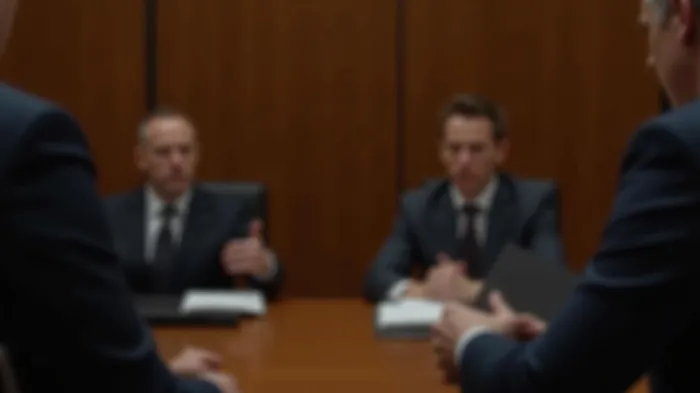Samourai Wallet Co-Founders Accuse Prosecutors of Withholding Key Evidence
Samourai Wallet’s legal team has accused federal prosecutors of withholding critical information that could have significantly impacted the criminal case against its co-founders, Keonne Rodriguez and William Hill. In a letter submitted to a Manhattan federal court on May 5, the attorneys revealed that prosecutors were informed by the US Treasury Department’s Financial Crimes Enforcement Network (FinCEN) in late 2023 that Samourai Wallet did not qualify as a Money Services Business (MSB) under existing guidance. Despite this information, prosecutors proceeded with criminal charges six months later, alleging that the crypto mixing service was operating as an unlicensed money transmitter. The defense claims that this guidance should have been disclosed by May 8, 2024, but was only shared with them on April 1, 2025, almost a year late.
Rodriguez and Hill were charged in February 2024 and arrested in April for allegedly facilitating over $2 billion in unlawful transactions, including $100 million linked to online black markets and scams, through Samourai’s crypto-mixing technology. Both men pleaded not guilty. The defense argues that FinCEN explicitly told prosecutors in a call that the Samourai app, which does not take custody of funds or hold private keys, would not be considered an MSB. According to a prosecutor's email summarizing that call, FinCEN representatives said that without custody, Samourai would likely not require a license, and that any attempt to argue otherwise would be legally difficult due to lack of precedent.
The defense is now requesting a court hearing to examine the government's delayed disclosure and explore potential remedies. They also plan to renew a motion to dismiss the case, due to the new evidence and a recent Justice Department policy shift. In an April 7 memo, Deputy Attorney General Todd Blanche stated that prosecutors should not pursue cases against crypto mixers for accidental regulatory violations. The defense argues that if Samourai was never required to register as a money transmitter under FinCEN’s own guidance, the entire basis of the criminal charges collapses. Both sides have already asked the court for more time on April 28 to consider whether to continue the case in light of the Justice Department’s changing stance on crypto enforcement.
This development comes amidst a broader clash between US federal prosecutors and the crypto industry, with multiple high-profile cases highlighting the tension. OpenSea CEO Devin Finzer recently criticized the US Securities and Exchange Commission’s (SEC) prior approach to crypto regulation, describing it as overly broad and harmful to innovation. Finzer argued that under the Biden administration, the SEC unfairly targeted legitimate players in the digital asset space, including OpenSea, by treating all digital assets with a one-size-fits-all approach. This, he said, created a persistent regulatory overhang that stifled progress in the sector. OpenSea received a Wells notice from the SEC in 2024, signaling a potential enforcement action over claims that it operated as an unregistered securities exchange. Finzer pushed back against the charge, calling it an example of “regulation by enforcement.”
Finzer is optimistic that the new leadership under SEC Chair Paul Atkins will take a more nuanced and innovation-friendly stance. He firmly believes that there is a need for regulation that protects consumers while still allowing space for experimentation and growth. Since the transition to the Trump administration, the SEC greatly reduced its legal pressure on crypto firms, including dropping cases against CoinbaseCOIN--, Kraken, Uniswap, Yuga Labs, and OpenSea. It even dismissed its years-long battle with Ripple. This change followed strong support from the crypto industry during the 2024 US elections, with pro-crypto candidates receiving over $119 million in donations.
Meanwhile, the US Attorney’s Office for the Eastern District of New York (EDNY) underwent a leadership change just as the criminal trial of former SafeMoon CEO Braden John Karony is set to begin. On May 5, the office announced that Joseph Nocella will take over as interim US Attorney for a period of 120 days or until a Senate-confirmed nominee is appointed. Nocella was appointed by President Donald Trump, replacing Acting US Attorney John Durham. He vowed to focus on prosecuting narcotics traffickers, gang members, terrorists, and other serious offenders. The timing of Nocella’s appointment happened as jury selection begins in the high-profile crypto fraud case against Karony. This raised some questions about whether the leadership transition could affect the prosecution’s direction. Karony, along with co-defendants Kyle Nagy and Thomas Smith, was indicted in November 2023 on charges of securities fraud conspiracy, wire fraud conspiracy, and money laundering conspiracy. Prosecutors allege the trio misappropriated millions of dollars’ worth of SafeMoon (SFM) tokens between 2021 and 2022. Karony maintained his innocence and has been out on a $3 million bond since February 2024. Earlier this year, Karony asked the court to consider delaying the trial due to proposed changes to US securities laws under the Trump administration, which he argued could influence the legal grounds of the case. However, jury selection is proceeding as scheduled under US Magistrate Judge James Cho, with District Judge Eric Komitee set to oversee the full trial starting May 6.

Quickly understand the history and background of various well-known coins
Latest Articles
Stay ahead of the market.
Get curated U.S. market news, insights and key dates delivered to your inbox.



Comments
No comments yet